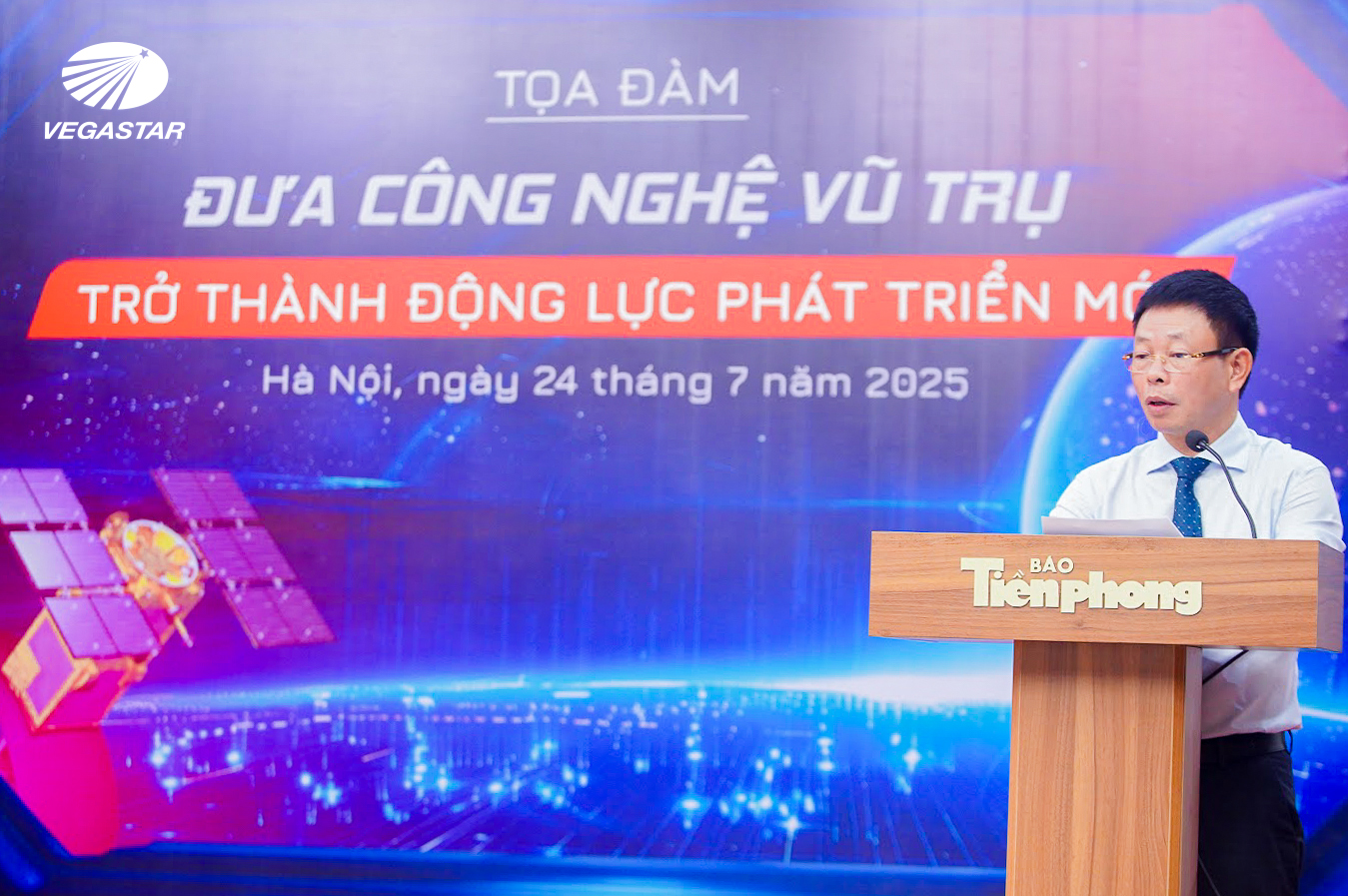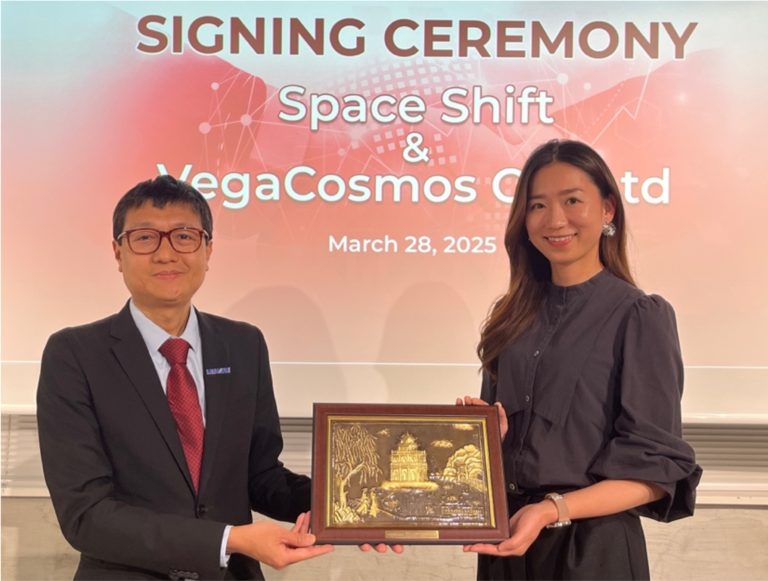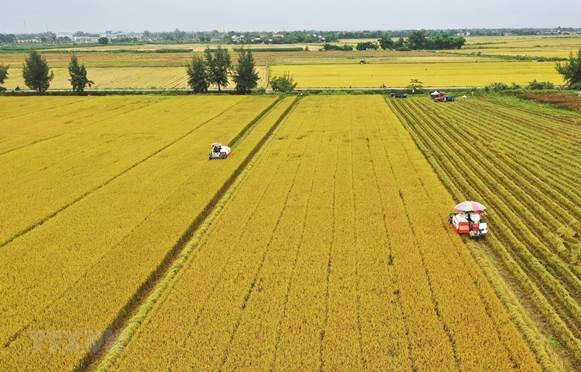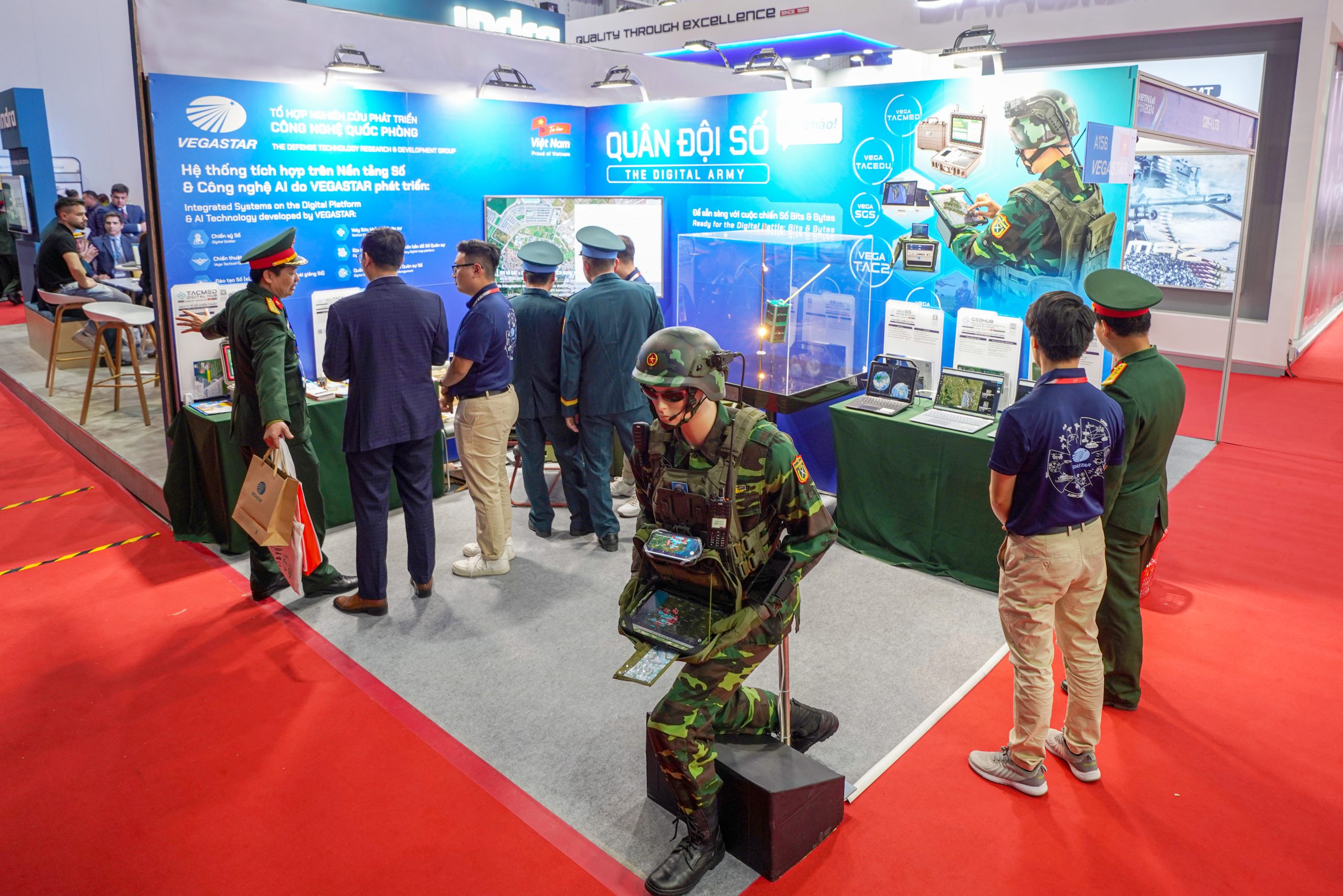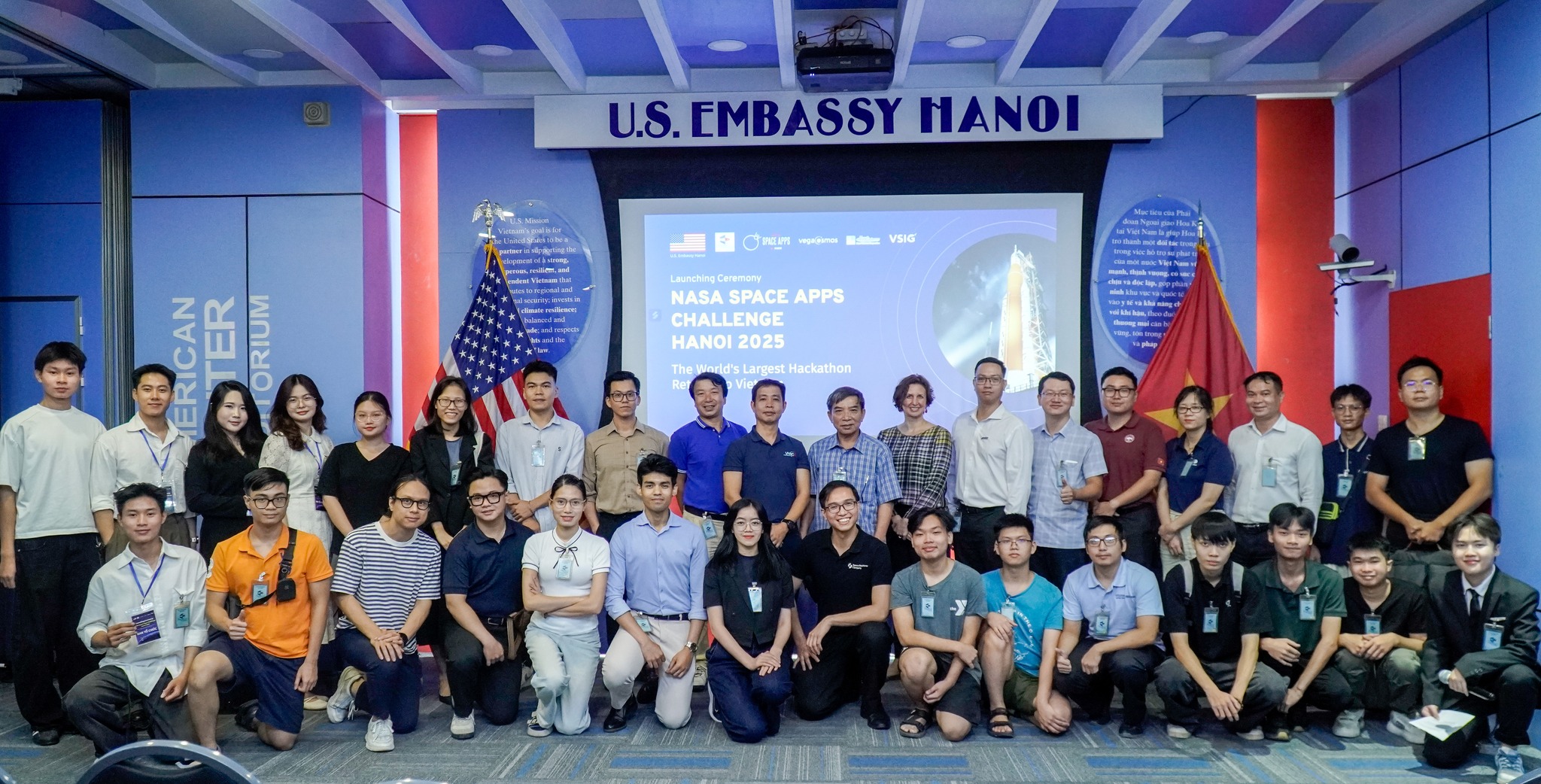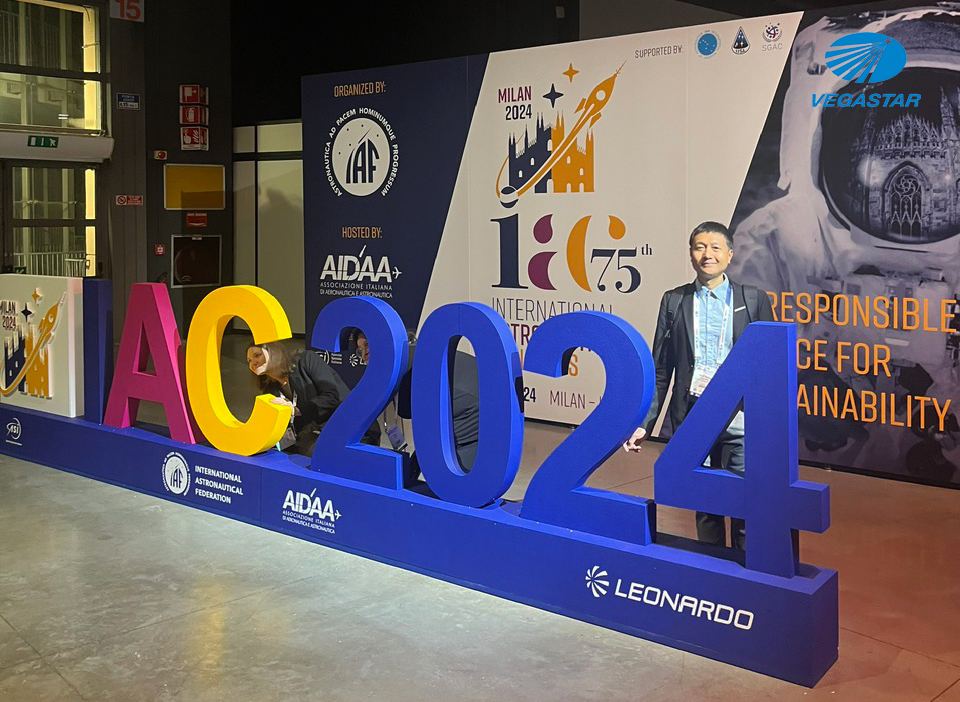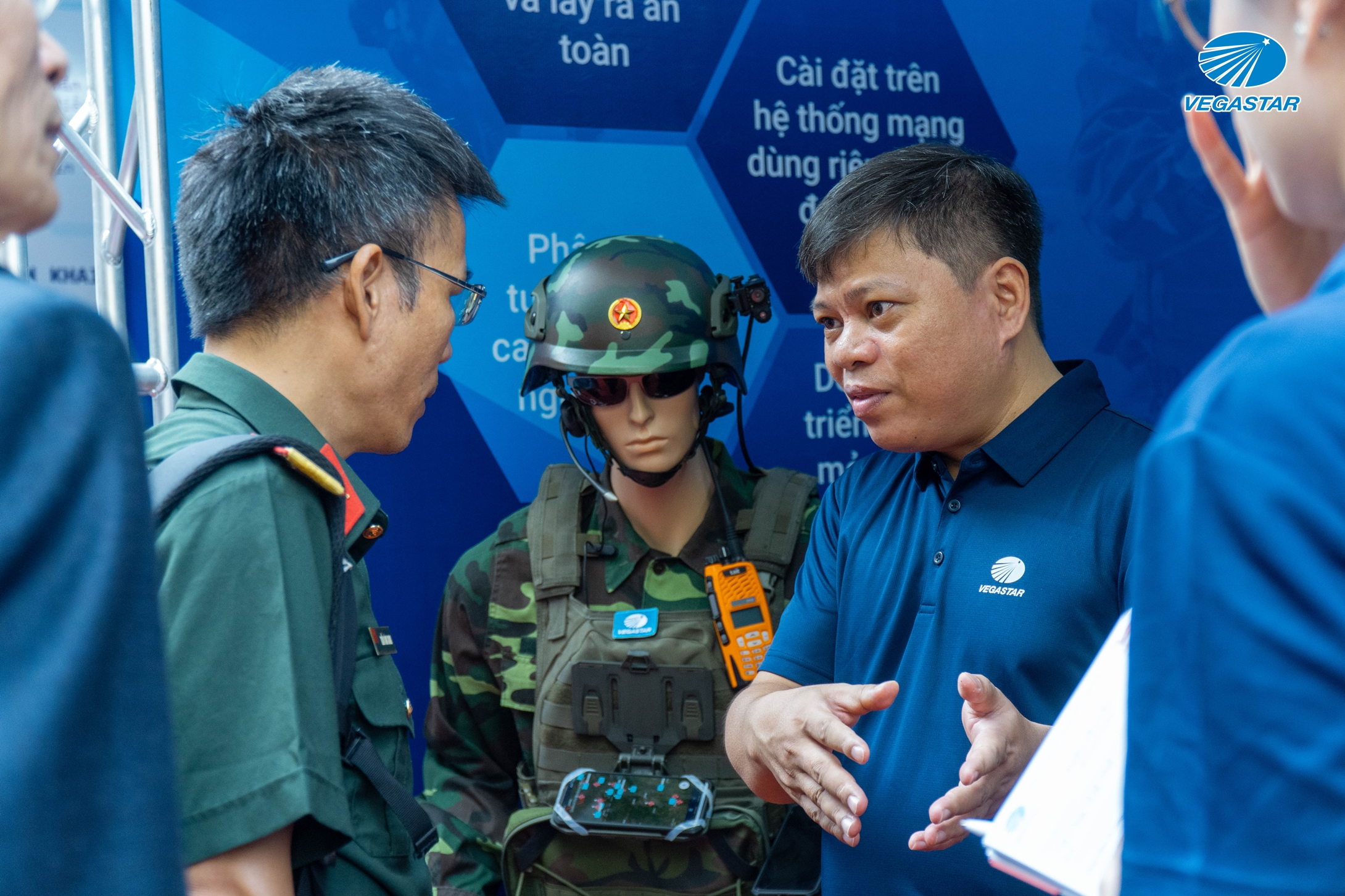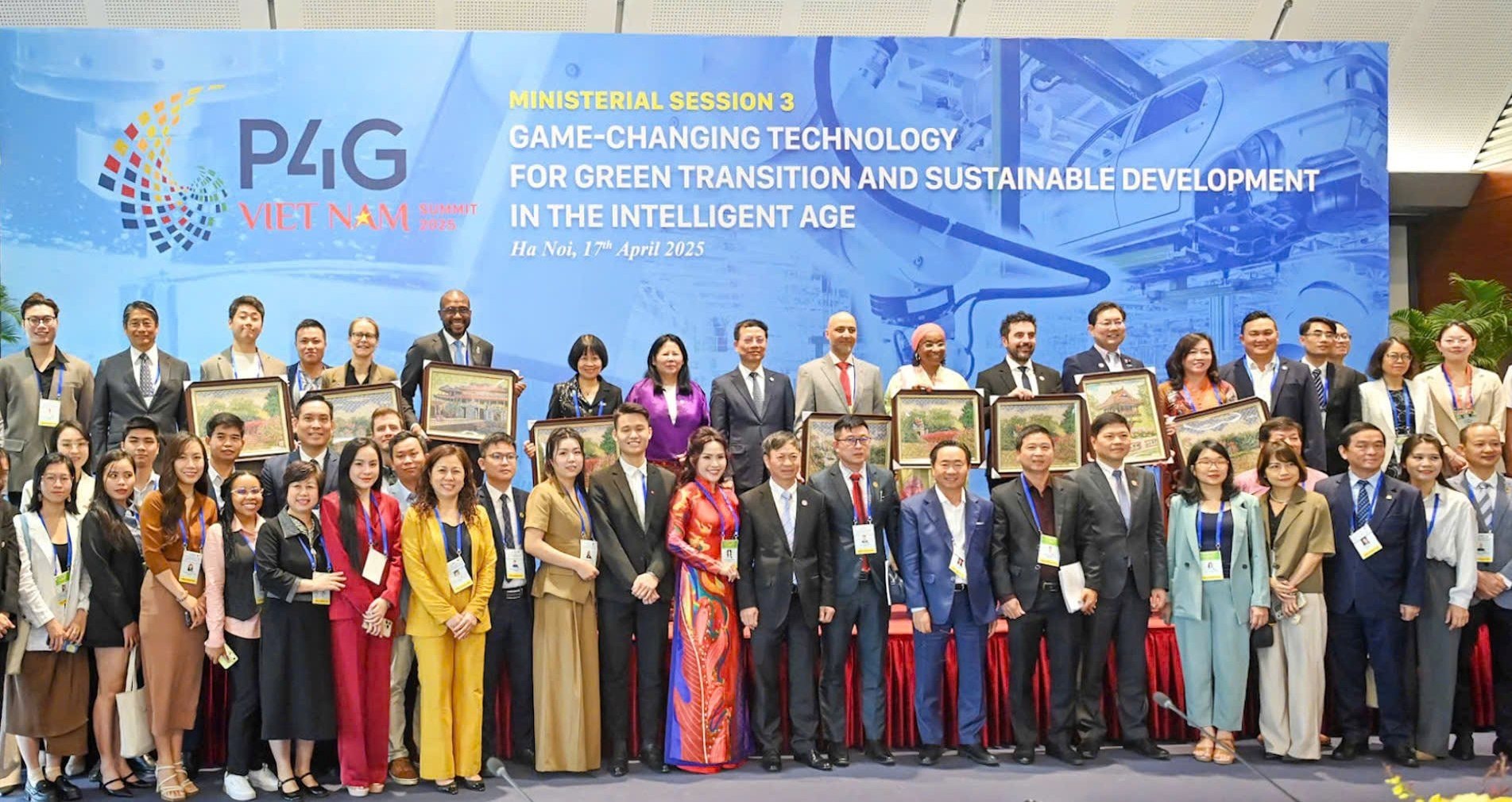On the morning of July 24, 2025, at the Tien Phong Newspaper Hall, 15 Ho Xuan Huong, Hanoi, a symposium titled “Transforming Space Technology into a New Driver of Development” was held, organized by Tien Phong Newspaper. The event brought together leading experts, heads of research institutions, representatives from ministries and agencies, as well as pioneering domestic and international technology enterprises.
The symposium aimed to affirm the strategic role of space technology in socio-economic development and national security, while serving as an open forum for stakeholders to assess opportunities, challenges, and propose solutions to advance Vietnam’s space technology sector in the new era.
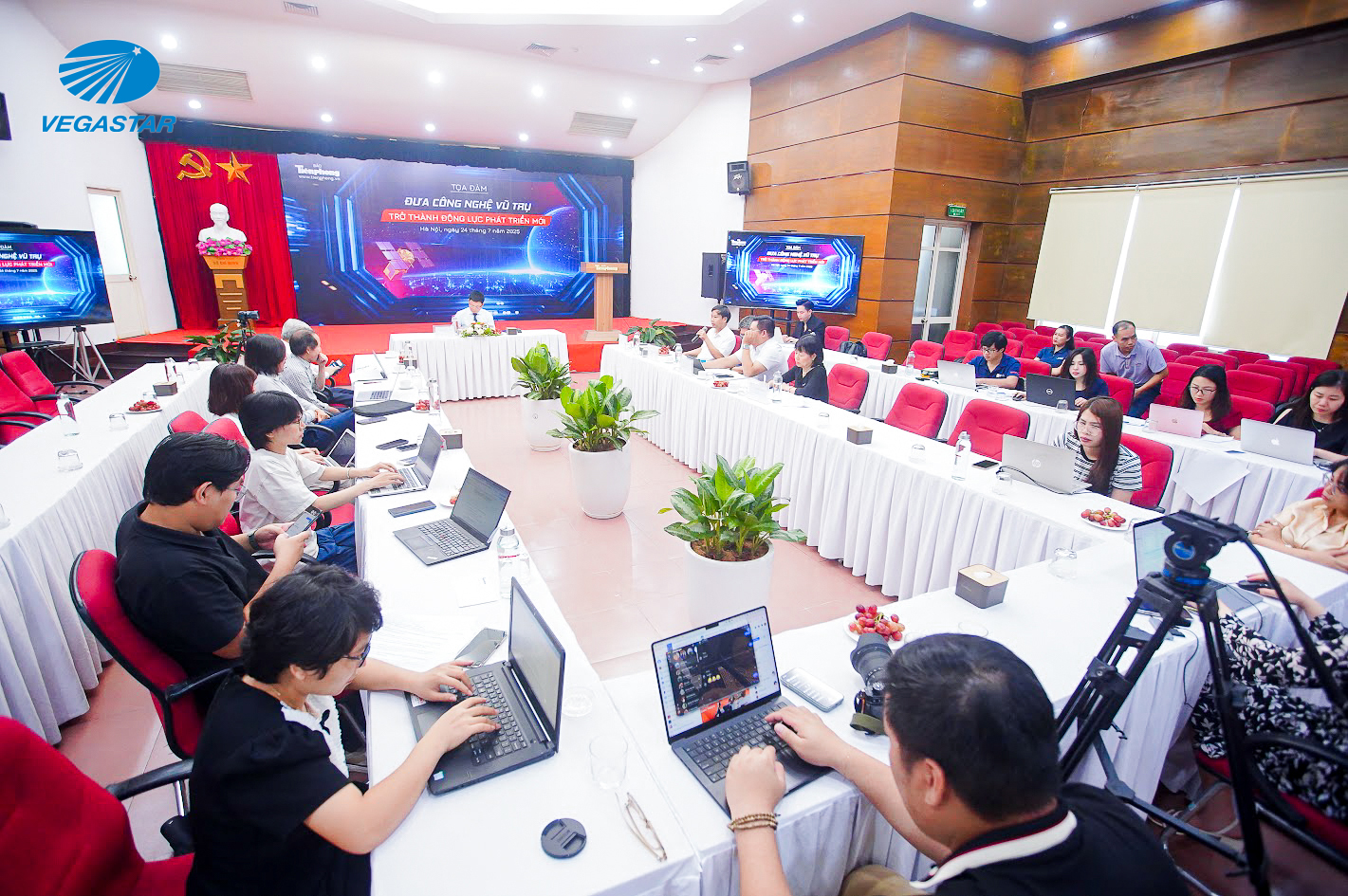 Symposium “Transforming Space Technology into a New Driver of Development”
Symposium “Transforming Space Technology into a New Driver of Development”
The symposium was attended by prominent experts and leaders in the fields of science, technology, and space, including: Dr. Nguyen Tuan, former Minister of Science and Technology; Prof. Nguyen Trong Hien, a senior expert currently working at NASA; Assoc. Prof. Dr. Pham Anh Tuan, Director General of the Vietnam National Space Center; Dr. Nguyen Luong Quang, lecturer and researcher at the American University in Paris, France; Mr. Ly Hoang Tung, Deputy Director General of the Department of Science, Technology, and Innovation under the Ministry of Science and Technology; Mr. Tran Tuan Ngoc, Director General of the National Remote Sensing Department under the Ministry of Natural Resources and Environment; and Ms. Le Thanh Huong, Chairwoman of Vegastar Group, representing a pioneering enterprise in the application of space technology in Vietnam.
As the main sponsor and a speaker at the symposium, Ms. Le Thanh Huong, Chairwoman of Vegastar Group, shared practical insights from a business actively implementing various space technology application platforms in Vietnam. She emphasized: “Geospatial technology—the cornerstone of national digital transformation—is enabling intuitive visualization of societal operations, from urban infrastructure management and environmental monitoring to identifying bottlenecks in supply chains or predicting disease outbreaks.”
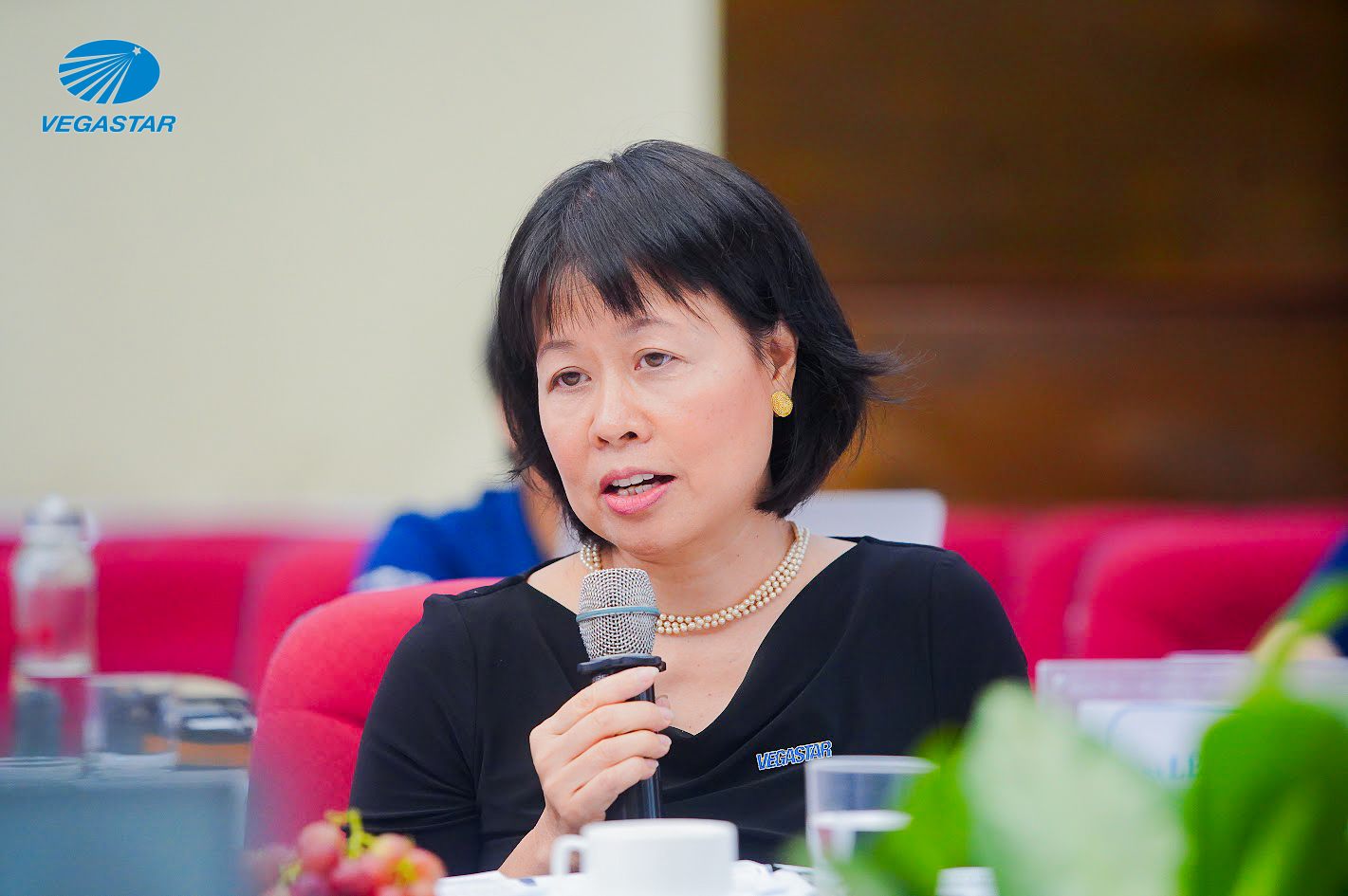
Ms. Le Thanh Huong, Chairwoman of Vegastar Group
VegaCosmos, a subsidiary of Vegastar Group, has developed GEOHUB AI Engine, a “geospatial application factory” that enables both experts and non-specialists to easily access and utilize satellite data. According to Ms. Hương, Vegastar’s goal is to position Vietnam as a “Vietnam Space Nation,” where space technology serves not only national defense but also practical everyday needs.
In his remarks at the symposium, Mr. Ly Hoang Tung, Deputy Director General of the Department of Science, Technology, and Innovation (Ministry of Science and Technology), stated: “Developing space technology is an essential requirement to ensure sovereignty, security, and promote socio-economic development while enhancing indigenous scientific and technological capabilities.” The National Science and Technology Program on space technology, currently in its fourth phase (2021–2030), focuses on four pillars: theoretical research, technology development and application, institutional improvement, and strengthening international cooperation.
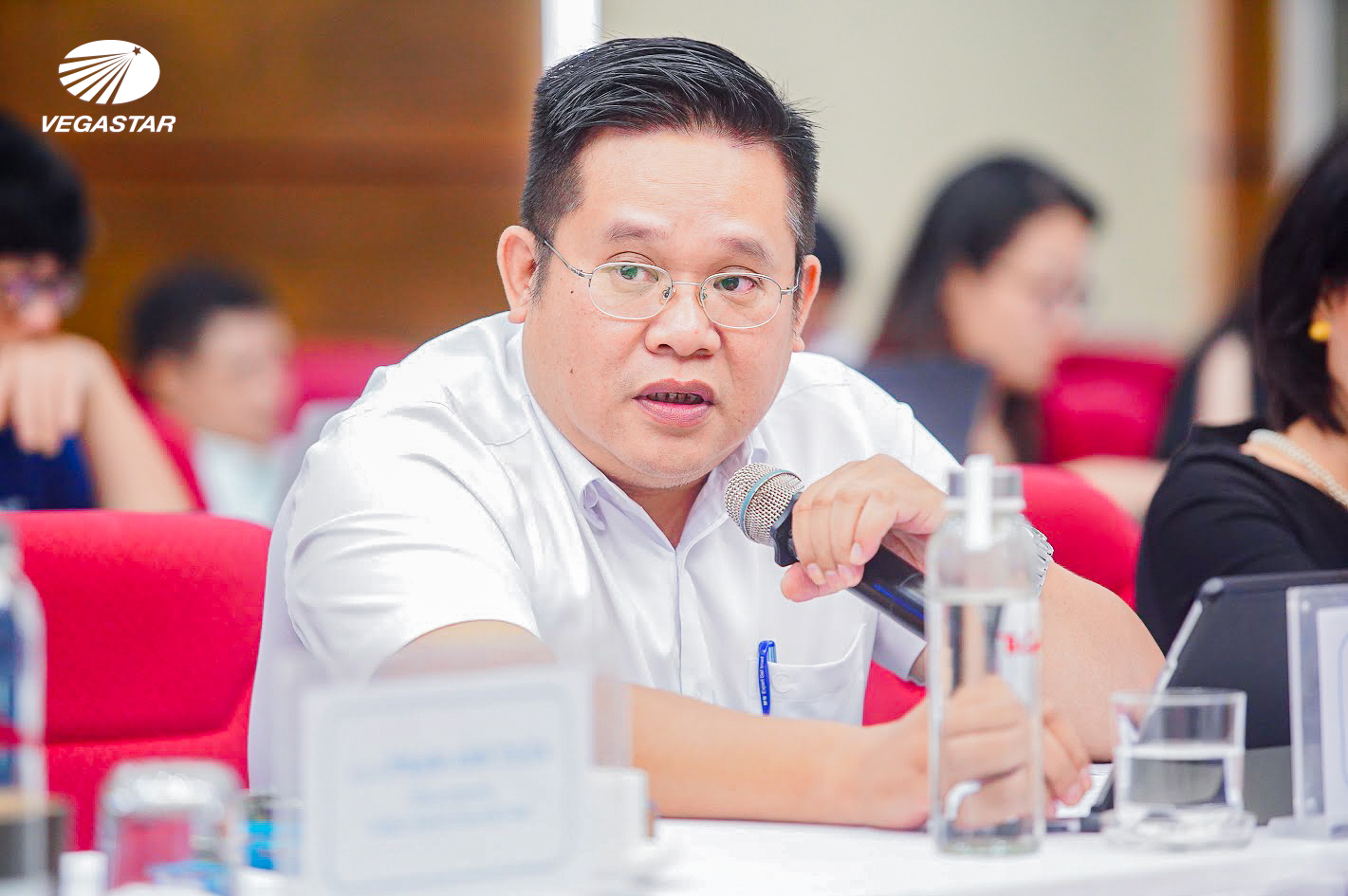
Mr. Ly Hoang Tung, Deputy Director General of the Department of Science, Technology, and Innovation, Ministry of Science and Technology
From a long-term development perspective, Assoc. Prof. Dr. Pham Anh Tuan, Director General of the Vietnam National Space Center, noted: “To achieve a real breakthrough, we need to build a development strategy not only up to 2030 but extending to 2040 and 2050.” He proposed establishing a National Aerospace Agency to centrally coordinate activities currently fragmented across various ministries and agencies, while affirming that the space economy is a promising sector, with a projected global market value of USD 1.4 trillion by 2030.
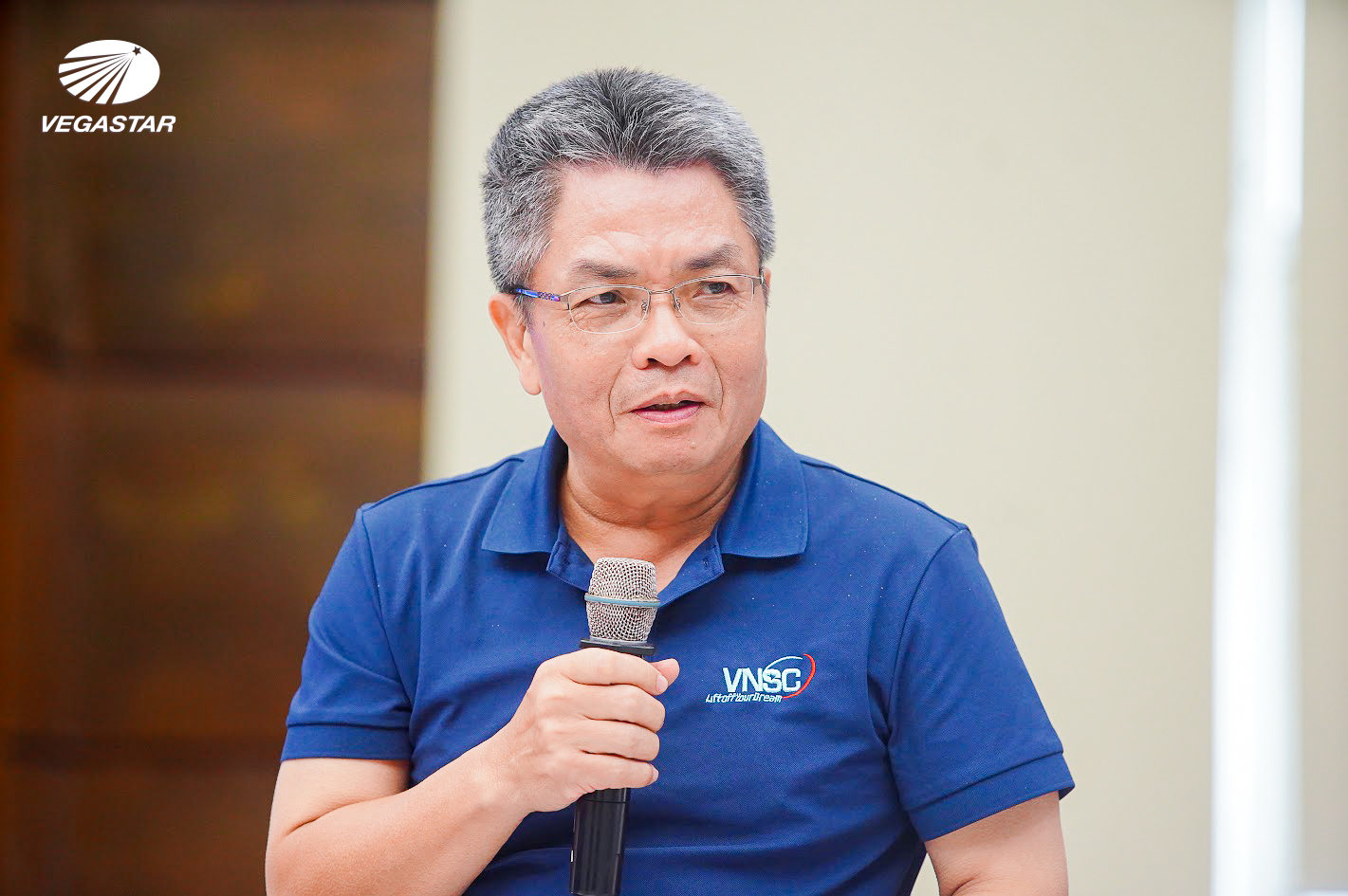
Assoc. Prof. Dr. Phạm Anh Tuấn, Director General of the Vietnam National Space Center
Drawing from international experience, Dr. Nguyen Luong Quang (CEA Paris-Saclay, France) highlighted the importance of open mechanisms and technology transfer: “Vietnam needs a ‘science incubator’ ecosystem where researchers have full creative autonomy, financial independence, and opportunities to commercialize technology.” According to him, this is a critical factor in retaining talent and transforming research outcomes into practical value.
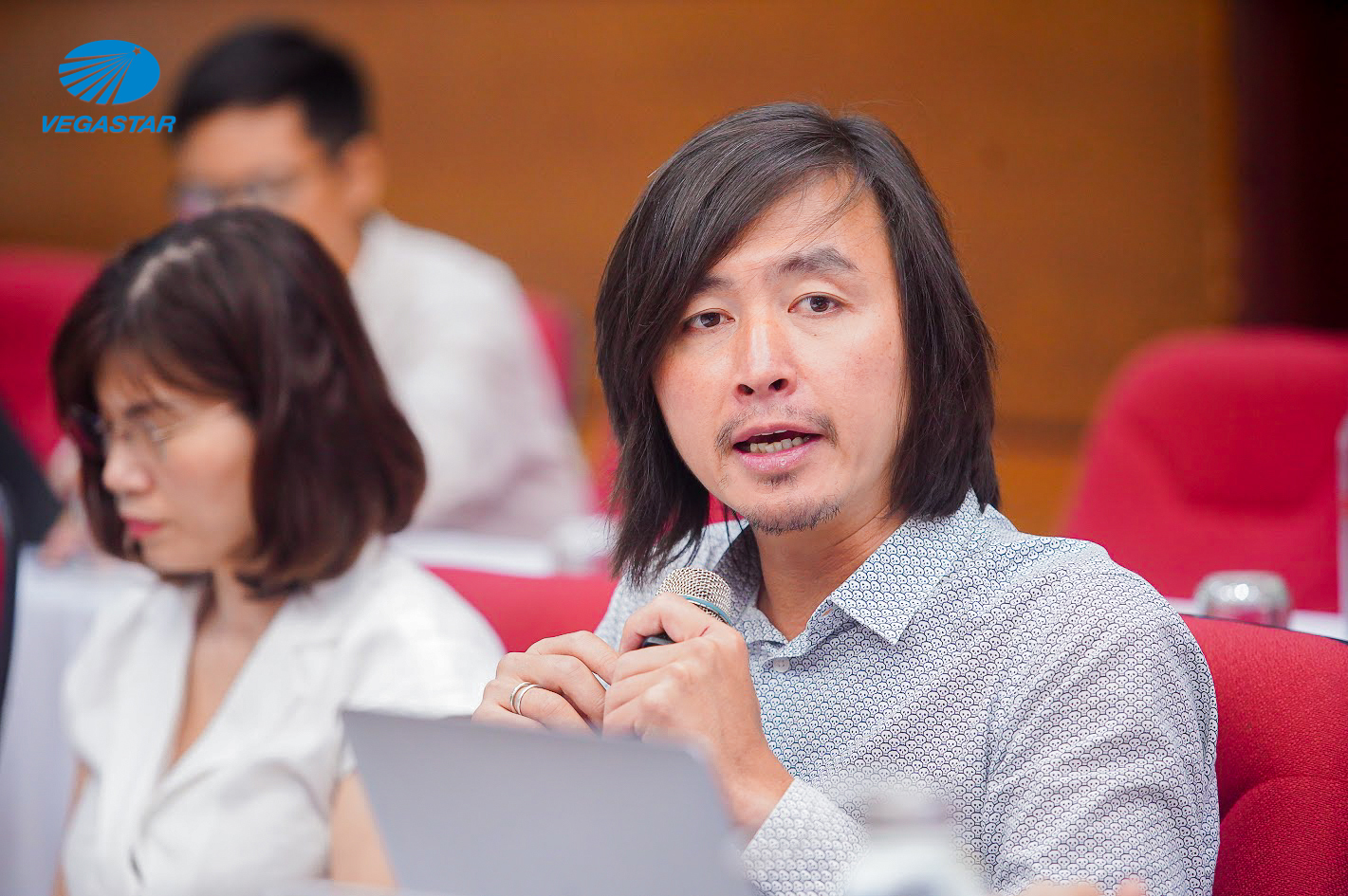
Dr. Nguyen Luong Quang, Expert from the Institute of Atomic Energy and Alternative Energy – CEA Paris-Saclay
Additionally, experts such as Prof. Nguyen Trong Hien (NASA), Dr. Nguyen Tuan (former Minister of Science and Technology), and Mr. Tran Tuan Ngoc (National Remote Sensing Department) proposed several specific solutions: improving regulatory frameworks, focusing investments on small satellites and low-orbit remote sensing, implementing sandbox mechanisms for large-scale projects, and developing policies to train and attract young talent in the space technology sector.
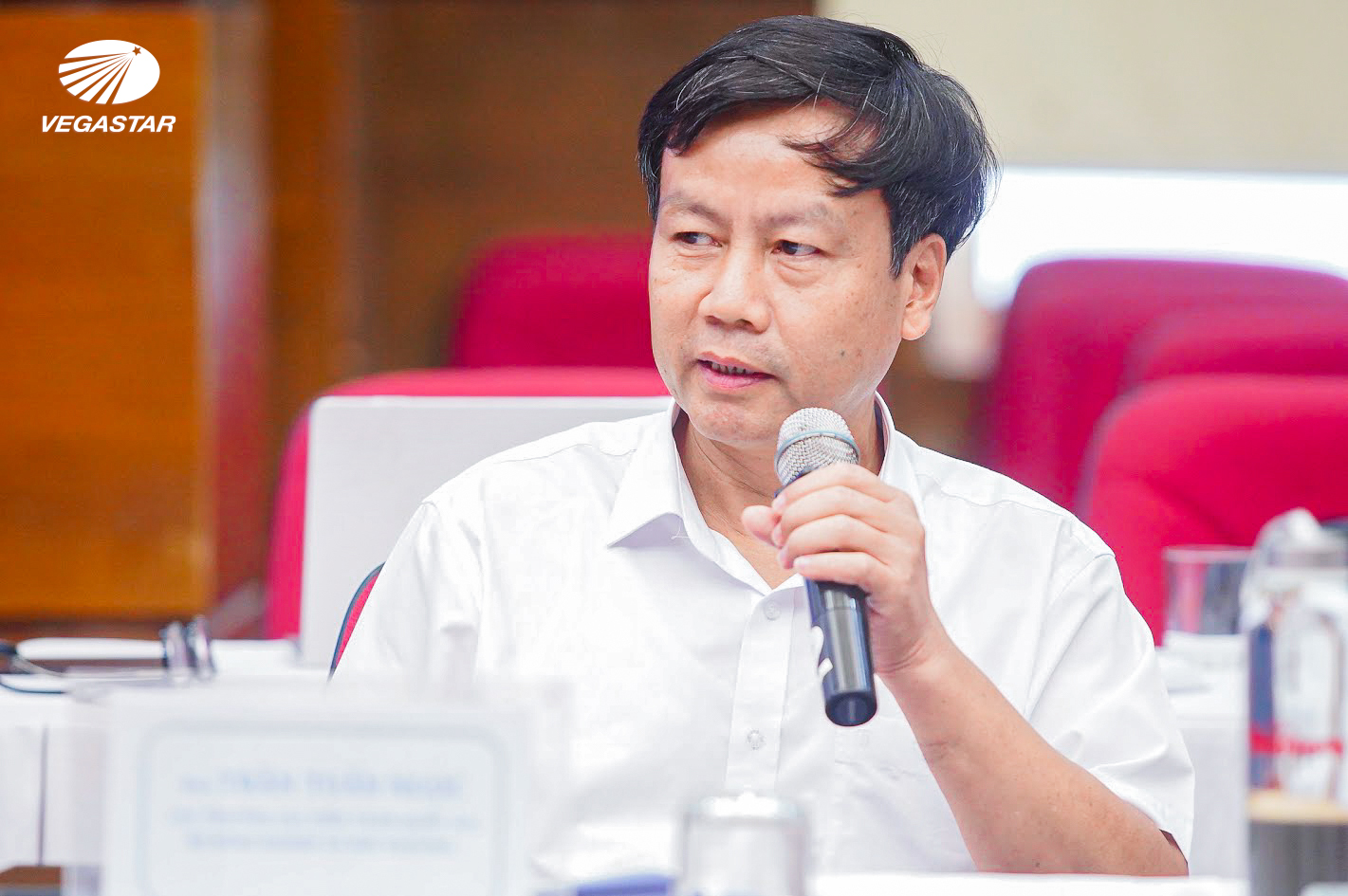
Mr. Tran Tuan ngoc, Director General of the National Remote Sensing Department, Ministry of Natural Resources and Environment
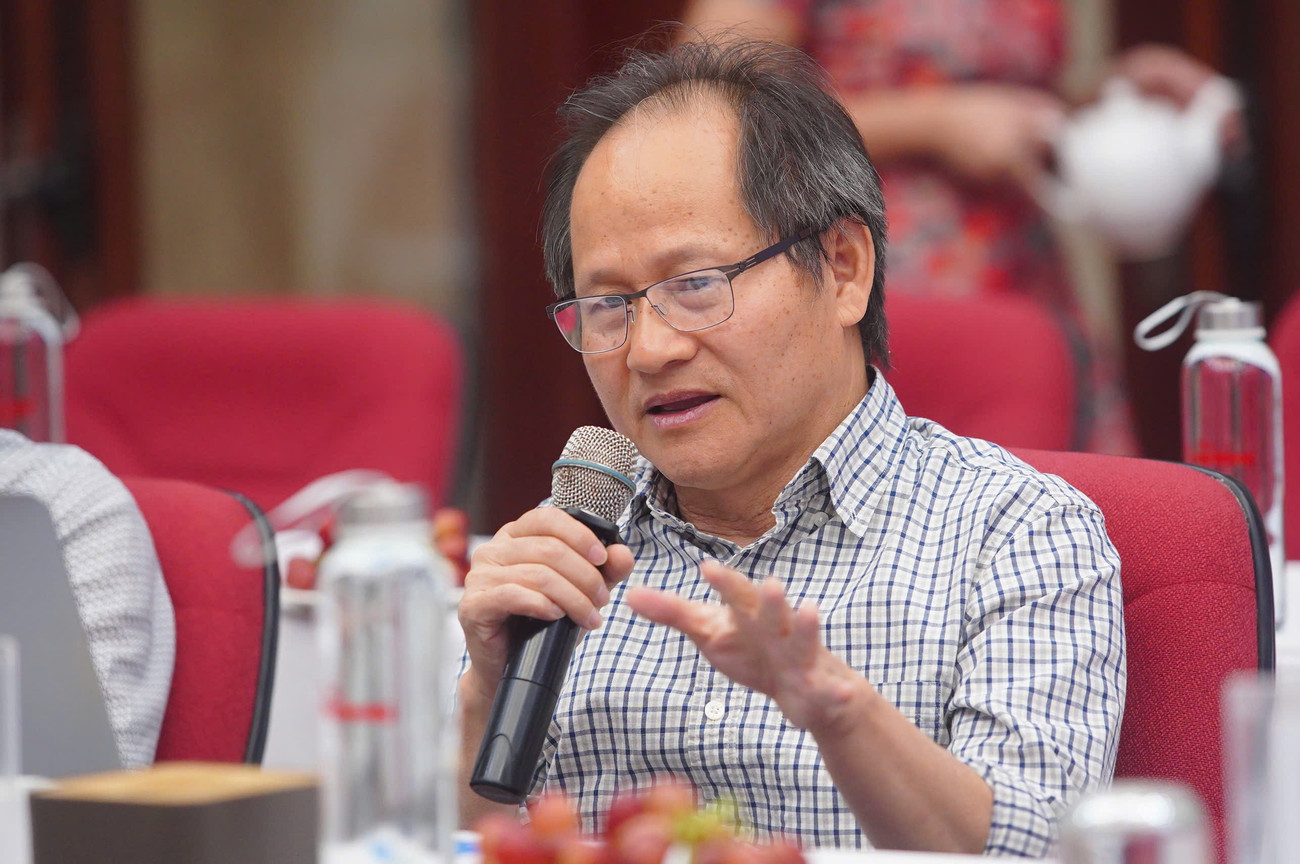
Dr. Nguyen Trong Hien, Expert from the U.S. National Aeronautics and Space Administration (NASA)
The symposium concluded with a strong consensus on the need for swift, interdisciplinary, and coordinated action in research, application, and commercialization of space technology. This will ensure that Vietnam not only keeps pace with global trends but also masters its space domain, in line with the objectives of Resolution 57-NQ/TW and the National Strategy for Space Technology Development to 2030.

